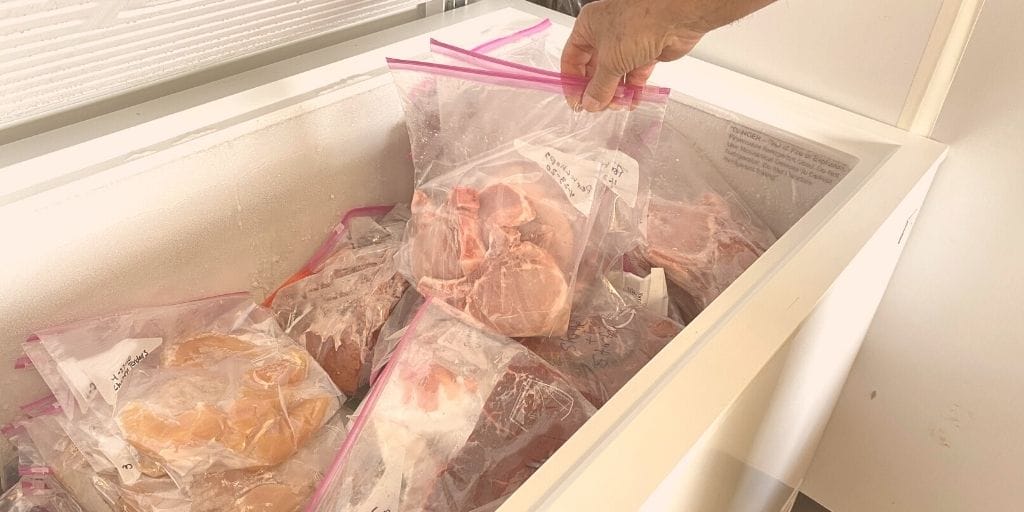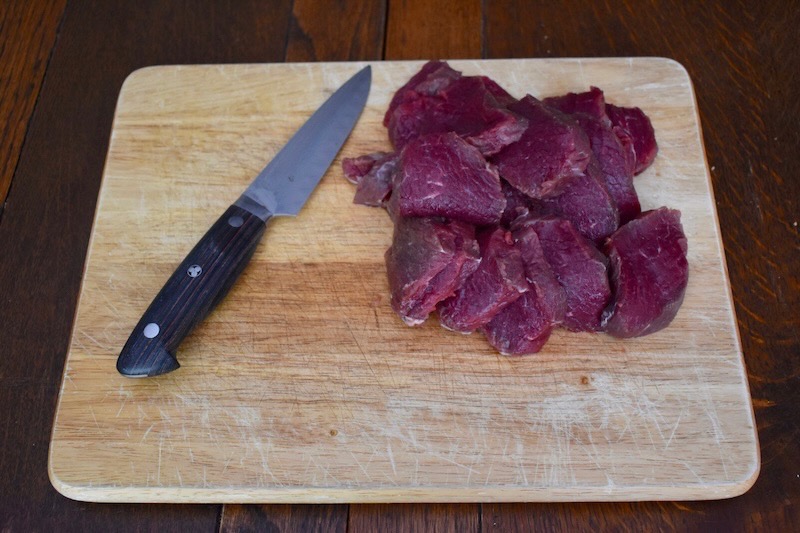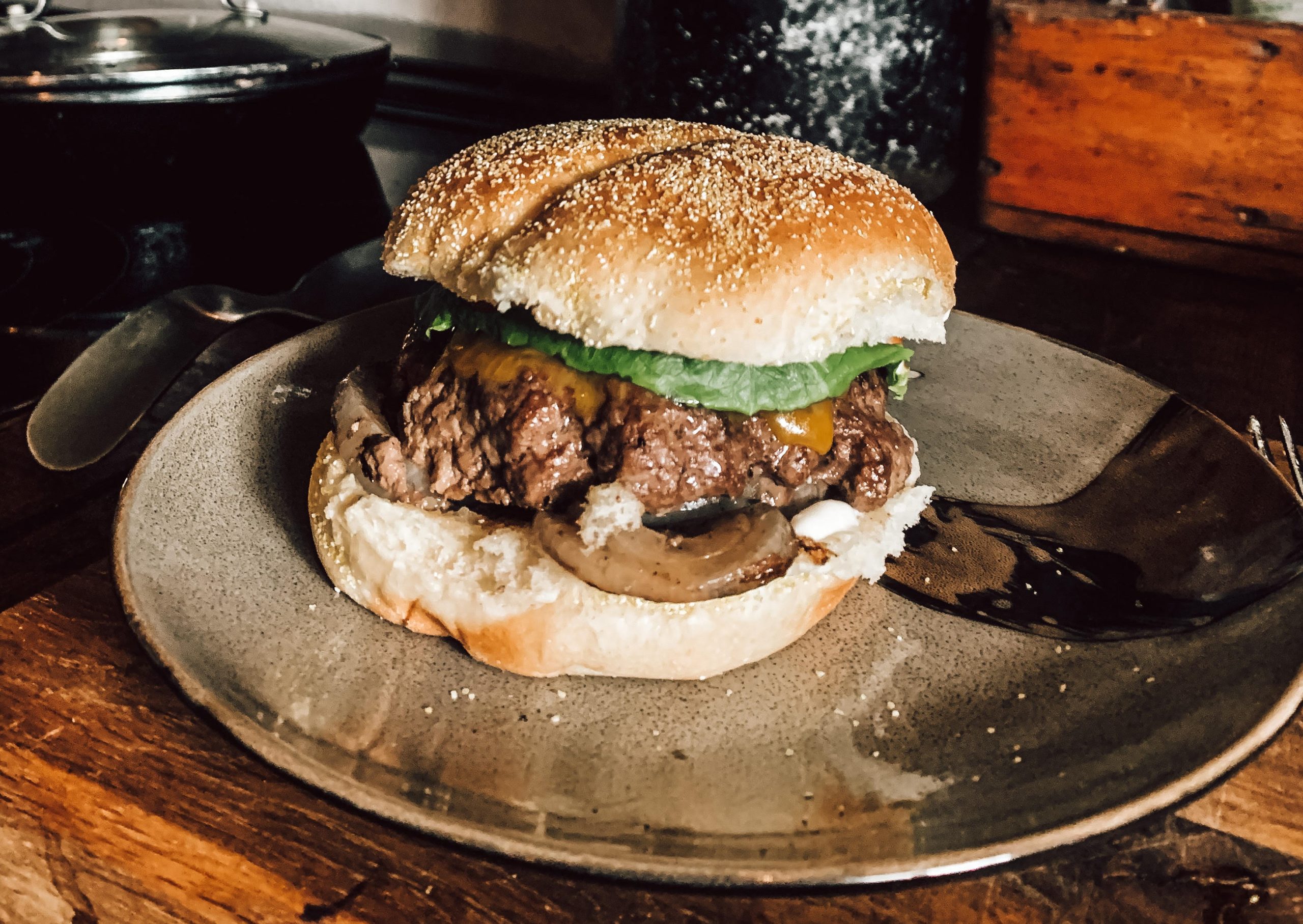Picture this: You excitedly reach into your freezer, ready to indulge in a mouthwatering feast of perfectly preserved meat. But wait! What’s that unsightly, cringe-worthy sight? Freezer burned meat. Fear not, my friend! In this article, we’ll unravel the mystery behind freezer burn, its effects, and most importantly, how to save your taste buds from a disastrous meal. Stay tuned for the juicy details!
What is Freezer Burn and How Does it Affect the Quality of Your Meat?
Freezer burn is a common issue that affects the quality of frozen meat and other food items. As hunters, we know how precious our meat is, and letting it get freezer burn – well, that’s not cool. It is caused by moisture loss from the surface of the food, which leads to dehydration, discoloration, and an unpleasant taste. Fortunately, there are a few steps you can take to prevent freezer burn and keep your food fresh for longer.

In this article, we will discuss what freezer burn is, how it affects the quality of your meat, and what you can do to prevent it.
With the increasing cost of grocery shopping, more and more people are choosing to buy frozen meats or go out and harvest their own meals, which can last much longer than their fresh counterparts. However, when these items are not stored properly, they can develop freezer burn. This phenomenon is not only unsightly but can also impact the safety and quality of frozen food.
Causes of Freezer Burn
When it comes to preserving the quality of frozen meat, freezer burn is a common nemesis. It’s that uninvited guest that ruins the texture, taste, and overall appeal of your precious cuts. But what exactly causes this pesky problem? Let’s delve into the science behind freezer burn and uncover its root causes.
Moisture Loss: The Culprit
At the heart of freezer burn lies moisture loss. When food is exposed to the cold, dry air inside the freezer, the water molecules on its surface start to evaporate. This process, known as sublimation, occurs more rapidly in the freezer’s low-humidity environment. As a result, the food becomes dehydrated, leading to undesirable consequences.
Air and Improper Packaging
The presence of air is another contributing factor to freezer burn. If the food is not properly packaged, oxygen can seep in and accelerate the dehydration process. Inadequate wrapping or loosely sealed containers provide an open invitation for the air to work its mischief.
Frost Formation
The formation of frost on the surface of frozen food can also contribute to freezer burn. When warm air enters the freezer, it condenses on the cold surfaces and freezes, creating ice crystals. These crystals not only draw moisture out of the food but also facilitate the oxidation process, further deteriorating its quality.
Frequent Temperature Fluctuations
Fluctuations in temperature can exacerbate the chances of freezer burn. Opening and closing the freezer door frequently or subjecting it to temperature fluctuations can create an unstable environment. Such changes lead to the formation of ice crystals, accelerating moisture loss and increasing the risk of freezer burn.
Looking for new wild game recipes? Get our downloadable with 10+ recipes today.
Impact of Freezer Burn on Different Types of Meat
Ah, the mouthwatering aroma of a perfectly cooked steak or the tender juiciness of a succulent piece of chicken. We all love our meat, and it’s a tragedy when freezer burn swoops in to ruin our culinary dreams. But did you know that the impact of freezer burn can vary depending on the type of meat? Let’s explore how freezer burn affects different meats and understand the unique challenges it poses.
Beef: Tough Times Ahead
Beef, the king of meats, is not immune to the clutches of freezer burn. When freezer burn sets in, beef can become tough and dry. The loss of moisture from the surface leads to the formation of unappetizing dry spots, making that beautiful ribeye or sirloin lose its tenderness and juiciness. Your steak might still be edible, but the lackluster texture and compromised flavor may leave you yearning for the meaty perfection you once knew.
Poultry: A Parched Predicament
Chicken, turkey, and other poultry are particularly vulnerable to the effects of freezer burn. The delicate nature of poultry meat means that it dries out faster when exposed to the freezer’s harsh conditions. Freezer burn on poultry can result in dry, rubbery textures and a loss of that luscious juiciness we crave. It’s a heartbreaking sight to see those once succulent chicken breasts transformed into lackluster, unappetizing cuts.
Fish: From Freshness to Frustration
Even our underwater friends aren’t spared from the wrath of freezer burn. Fish, known for its delicate flavor and moist flesh, can suffer greatly when freezer burn strikes. The loss of moisture can cause fish to become dry, flaky, and tasteless. That beautiful salmon fillet or delicate white fish may transform into an unappealing, brittle piece that fails to tantalize your taste buds.
Wild Game: Nature’s Bounty, Lost
For those who enjoy the spoils of hunting, freezer burn can be a cruel thief of flavor and quality. Wild game meat, such as venison or wild boar, is already leaner than its domestic counterparts. When freezer burn sets in, the lack of fat exacerbates the problem. The meat can become excessively dry and lose its natural flavors, turning your prized game into a disappointing meal.
How to Properly Store Your Meat in the Freezer for Maximum Freshness
Proper storage of meat in the freezer is essential to ensure maximum freshness and quality. It is important to know the right way to store your meat in the freezer so that it stays fresh and safe for consumption. Freezing meat is an effective way to preserve it for longer periods of time. However, there are a few important things to consider when freezing meat to ensure it stays safe and delicious. Knowing how long you can freeze meat, the best way to freeze it, and how to properly thaw it are essential for a successful outcome. With this information in mind, you can easily extend the shelf life of your favorite cuts of meat without sacrificing quality.
Read More: Organizing Wild Game Meat
What are the Signs of Freezer Burned Meat and How Can You Tell if It’s Still Safe To Eat?
Freezer burn is a common issue faced by many people when storing frozen food. It can affect the quality and taste of the food, making it unappetizing and unsafe to eat. If you want to know if your frozen meat has been affected by freezer burn, there are a few telltale signs that you can look out for. This includes discoloration, dry spots or patches, and an off-putting odor. If you spot any of these signs on your meat, it is best to discard it as it may not be safe to eat.
Tips for Preventing Freezer-Burned Meat & Keeping Your Food Fresh Longer
Keeping your food fresh and safe to eat for longer periods of time can be a challenge. But with the right techniques, you can prevent freezer burn on meat and other foods and keep them fresh for longer.
First, make sure to wrap your food tightly in plastic wrap or airtight containers before freezing it. This will help protect it from moisture loss and keep out any bacteria or contaminants. Second, store your frozen food in an area of the freezer where the temperature is consistent. This will help ensure that the food doesn’t thaw and refreeze which can lead to freezer burn. Third, label all of your frozen items with the date they were stored so you know when they need to be used by. Fourth, avoid over-stuffing your freezer as this can cause fluctuating temperatures that could lead to spoilage or freezer burn. Finally, check on your frozen foods periodically to make sure nothing has gone bad. We love to vacuum-seal all of our wild game!
Freezer burn can be a major issue for anyone with a freezer full of steaks, chicken breasts, or wild game. It can render food inedible and lead to huge losses in terms of flavor, texture, and nutrition.
Can freezer-burned meat be salvaged?
While it may not taste very good, freezer-burned meat can still be used in recipes that require cooked meat, such as soups, stews, and casseroles. It can also be used to make ground meat or meatballs.
How to thaw freezer-burned meat?
To thaw freezer-burned meat, it is best to do so slowly in the refrigerator. This will help to prevent further damage to the meat. Once thawed, it should be used as soon as possible.
How to dispose of freezer-burned meat?
If freezer-burned meat cannot be salvaged, it should be disposed of properly. It can be thrown away in the trash. Or, it can be composted if it is not too heavily freezer burned.



